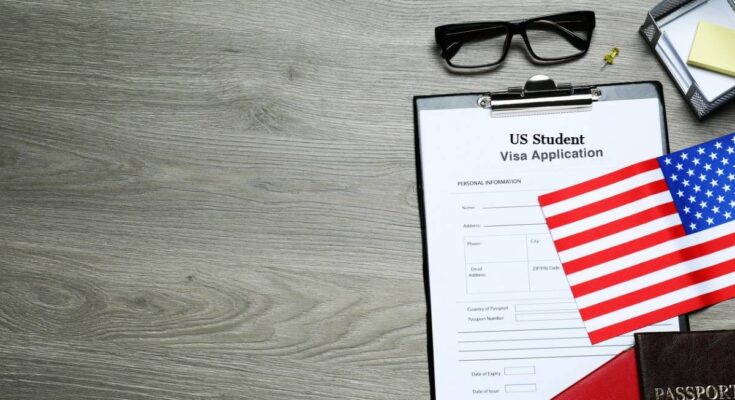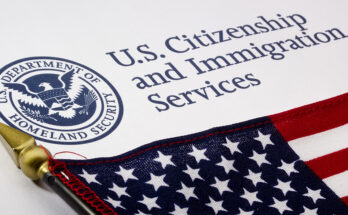United States Business Visa Requirements: Understanding the requirements for a United States business visa is crucial for immigrants aiming to engage in business activities within the U.S.
It ensures compliance with legal standards and smooths the pathway for successful business operations, making it essential for prospective entrepreneurs and investors from abroad.
Overview of United States Business Visa
A United States business visa serves as a gateway for professionals worldwide to engage in business activities within the U.S. without entering the labor market. These visas are essential for those attending conferences, consulting with associates, negotiating contracts, or conducting other temporary business affairs. The key feature of the U.S. business visa is that it allows the holder to explore business opportunities, participate in professional meetings, and enhance international collaborations, making it a vital tool for global entrepreneurs and business executives.
Types of Business Visas in the United States
The U.S. offers several types of business visas, catering to different professional needs and circumstances. The most common types are:
- B-1 Visa: This is the standard visa for business visits. It is ideal for individuals participating in business activities of a commercial or professional nature. It includes activities such as consultations, meetings, negotiations, and attending trade shows, but does not permit employment in the U.S.
- H-1B Visa: Designed for specialized occupations, the H-1B visa allows U.S. employers to temporarily employ foreign workers in specialty occupations. This visa requires a higher educational level or its equivalent and is specific to the applicant’s field of expertise.
- L-1 Visa: This visa is for intra-company transferees who are managers, executives, or employees with specialized knowledge. The L-1 visa is a good option for those who are being temporarily transferred to a U.S. parent, branch, affiliate, or subsidiary of their current employer.
- E-1 and E-2 Visas: E-1 treaty trader and E-2 treaty investor visas are available to nationals of countries with which the U.S. maintains treaties of commerce and navigation. The E-1 visa allows individuals to enter the U.S. to engage in substantial trade, while the E-2 visa permits individuals to direct and develop operations of an enterprise in which they have invested a substantial amount of capital.
However, understanding the specific requirements and limitations of each visa type is crucial for a successful application and a smooth U.S. business engagement.
Eligibility Criteria for United States Business Visas
Understanding the eligibility criteria for United States business visas is crucial for professionals and entrepreneurs looking to engage in business activities within the U.S. This guide outlines the general eligibility requirements and delves into specific criteria for each type of business visa.
General Eligibility Requirements
All applicants for U.S. business visas must meet these fundamental criteria:
- Purpose of Visit: Must demonstrate that the visit to the U.S. is for legitimate business purposes.
- Home Country Ties: Applicants must prove strong ties to their home country, indicating they will return after their business is concluded. This includes evidence of a job, family, property, or financial commitments.
- Financial Stability: Must provide evidence of sufficient funds to cover the trip and stay in the U.S.
- Compliance with U.S. Laws: A clean legal history and adherence to the laws of the United States are mandatory.
Specific Criteria for Each Type of Business Visa
B-1 Visa (Temporary Business Visitor)
- Conference or Meeting: Evidence of event registration and purpose.
- Consultation: Invitations or correspondence from a U.S. counterpart.
- Contract Negotiation: Documentation supporting the negotiation process.
L-1 Visa (Intracompany Transferee)
- Employment History: Must have been employed by a foreign office of the U.S. company for at least one continuous year within the three years preceding the application.
- Managerial or Executive Role: The position in the U.S. must be at a managerial or executive level, or involve specialized knowledge.
E-1 Visa (Treaty Trader)
- Substantial Trade: Proof of substantial trade (more than 50% of total volume) between the U.S. and the treaty country.
- Nationality: Must be a national of a treaty country.
E-2 Visa (Treaty Investor)
- Substantial Investment: Significant investment in a U.S. business, which is not marginal and can generate more than enough income to provide a minimal living for the investor and their family.
- Risk of Capital: The investment must be at risk, meaning it is subject to partial or total loss if the business fails.
H-1B Visa (Specialty Occupations)
- Specialty Occupation: The job must meet the definition of a specialty occupation by requiring a specific set of skills or knowledge.
- Higher Education: The applicant must hold at least a bachelor’s degree or its equivalent in a field related to the position.
However, applicants are advised to consult with a legal expert to ensure compliance and accuracy in their visa application process.
Application Process for United States Business Visas
Applying for a United States business visa involves a clear, step-by-step process. Whether you’re planning to expand your business, attend meetings, or engage in short-term work, here’s how you can secure your visa:
Step-by-Step Guide on How to Apply for a Business Visa
- Determine the Visa Type: Identify whether you need a B-1 visa for business activities or another type relevant to your specific business needs.
- Complete the Online Visa Application (Form DS-160): Fill out the form accurately. After submission, print the confirmation page for your records.
- Pay the Visa Fee: This non-refundable fee must be paid before scheduling your interview.
- Schedule an Interview: Visa interviews are required for most applicants. Schedule yours at the nearest U.S. Embassy or Consulate.
- Compile Necessary Documentation: Gather all required documents ahead of your interview date.
- Attend Your Visa Interview: Bring all required documents and attend the interview where a consular officer will determine if you are eligible for the visa.
- Wait for Processing: If approved, your visa will be processed and mailed to you.
Documents Required for the Application
Ensure you have the following documents ready for your application:
- Passport valid for travel to the United States: Your passport must be valid for at least six months beyond your period of stay.
- Nonimmigrant Visa Application, Form DS-160 confirmation page.
- Application fee payment receipt.
- Photo: Upload your photo while completing the online Form DS-160.
- Letter from your employer: This should detail the purpose of your trip, your responsibilities, and the length of your stay.
- Financial evidence: Prove your ability to support yourself during the stay.
- Previous U.S. visas (if applicable).
Where and How to Submit Visa Applications
- Submission Online: Begin by completing the DS-160 form online at the Consular Electronic Application Center (CEAC) website.
- Consulate or Embassy Submission: Schedule and attend your visa interview at a U.S. Embassy or Consulate, bringing all required documents. This is where your visa will be processed.
By following these guidelines, applicants can streamline their U.S. business visa application process. Remember, early preparation and thorough documentation are key to a successful application.
Financial Requirements for United States Business Visas
When applying for a United States business visa, providing proof of financial stability is crucial. This section outlines the financial documents required and explains why demonstrating financial stability is essential.
List of Financial Proofs Required
To meet the financial requirements for a U.S. business visa, applicants must submit several documents, including:
- Bank Statements: Recent statements showing consistent income and a stable balance.
- Tax Returns: Copies of recent tax returns to validate income history and tax compliance.
- Financial Sponsorship: If applicable, evidence of financial sponsorship, including the sponsor’s bank statements and commitment letter.
- Business Ownership Documents: If you own a business, include proof of business registration and financial statements.
- Pay Stubs: For employed individuals, recent pay stubs to demonstrate current employment and salary.
- Letter from Employer: A letter confirming your employment status, salary, and the purpose of your trip.
- Property or Asset Documents: Documentation showing ownership of significant assets like property or investments can enhance your application.
Importance of Demonstrating Financial Stability
Demonstrating financial stability is vital for several reasons:
- Visa Approval: Financial stability reassures the visa officers that you can support yourself during your stay in the U.S. without unlawful employment.
- Credibility: Solid financial proof reflects credibility and serious intent, which are crucial for business engagements in the U.S.
- Preventing Overstay: By showing that you have strong ties and financial responsibilities in your home country, you minimize the risk of visa overstay in the eyes of the adjudicators.
Meeting these financial requirements is essential for securing a U.S. business visa, as it not only supports your application but also establishes trust with visa authorities, facilitating smoother business transactions in the United States.
Legal Considerations and Compliance for United States Business Visa Holders
When planning a business trip to the United States, understanding the legal obligations and compliance requirements for a business visa is crucial. Here’s a concise guide to help you navigate these aspects smoothly.
Legal Obligations and Compliance for Business Visa Holders
- Adherence to Visa Duration: Business visa holders must strictly adhere to the entry and exit dates specified on their visa. Overstaying can lead to penalties and future entry denials.
- Engagement in Permitted Activities: Visa holders are permitted to engage in business-related activities such as meetings, conferences, and negotiations. However, taking up employment or extending stay for non-business purposes without proper authorization is prohibited.
- Accurate Information: Providing accurate information during the visa application process is mandatory. Any discrepancies can lead to visa revocation or denial of entry.
- Reporting Requirements: Some visa categories may require holders to report certain activities or changes, such as a change in the business itinerary, to the U.S. Citizenship and Immigration Services (USCIS).
- Tax Compliance: While on a business visa, individuals might need to comply with U.S. tax laws, which could include reporting income generated from U.S.-based activities.
Importance of Adhering to Visa Conditions
- Avoiding Legal Complications: Staying compliant with visa conditions helps avoid legal issues such as deportation or entry bans, which can complicate future travel or business operations in the U.S.
- Maintaining Good Standing: Compliance ensures that your immigration record remains in good standing, essential for future visa applications or extensions.
- Credibility: Adhering to visa regulations demonstrates credibility and reliability, traits highly valued during any subsequent dealings within the U.S. legal or immigration system.
However, always consider consulting with an immigration attorney to navigate complex scenarios or if your business activities might expand beyond typical business visa allowances.
Common Challenges and Solutions for United States Business Visa Applications
Understanding these common issues and how to overcome them is crucial for a successful application. Here’s a breakdown of typical hurdles and practical solutions.
Common Challenges Faced by Applicants
- Complex Documentation Requirements: The U.S. visa process demands a plethora of documents, including proof of business activities, financial statements, and letters of invitation.
- Visa Appointment Delays: High demand can lead to long waits for visa interview appointments, especially in peak travel seasons.
- Navigating the Visa Interview: The visa interview can be intimidating, with applicants required to convincingly demonstrate their travel intent and financial stability.
- Administrative Processing Delays: Some applications undergo extended review periods, leading to uncertainty and potential disruption of business plans.
- Rejection Due to Insufficient Ties to Home Country: Applicants often face rejections if they cannot adequately prove strong ties to their home country, suggesting they might not return post-visit.
Tips and Solutions for Overcoming These Challenges
- Prepare Thoroughly for Documentation: Start gathering documents well in advance. Ensure you understand the specifics of what is required by consulting the official U.S. visa information website or seeking advice from visa professionals.
- Schedule Early for Visa Appointments: Book your visa appointment as soon as you know your travel dates. Early scheduling can help avoid the rush and give you ample time to prepare for the interview.
- Practice for the Interview: Familiarize yourself with common interview questions and practice your responses. The key is to remain calm, honest, and clear about your business objectives in the U.S.
- Follow Up on Your Application Status: Keep track of your application status online. If your application falls into administrative processing, regularly check for updates and be prepared to provide additional information if requested.
- Demonstrate Strong Ties to Your Home Country: Strengthen your application by including evidence of your job, family, property, or financial commitments in your home country to show that you have reasons to return.
By addressing these challenges proactively, applicants can enhance their chances of securing a U.S. business visa, paving the way for fruitful business engagements in the United States.
Interview Preparation for United States Business Visa
Applying for a United States Business Visa requires careful preparation, especially when it comes to the interview process. Here’s a streamlined guide to help you confidently navigate through your visa interview.
Tips on Preparing for the Visa Interview
- Research Thoroughly: Understand the purpose of your visit and the type of visa you need. Familiarize yourself with the U.S. company you will be interacting with, if applicable.
- Documentation: Compile all required documents, such as your passport, visa application forms, appointment letter, financial statements, and proof of ties to your home country. Organize them in a way that they are easy to present during your interview.
- Practice Your Responses: Practice answering common visa interview questions succinctly. Emphasize your business purpose, duration of stay, and your intention to return to your home country.
- Dress Formally: First impressions matter. Dress in formal business attire to convey professionalism.
- Arrive Early: Aim to arrive at the embassy or consulate at least 30 minutes before your scheduled interview to avoid any last-minute stress.
- Stay Calm and Composed: Be honest and direct in your responses. Maintain a calm demeanor throughout the interview.
Common Questions and How to Answer Them
What is the purpose of your visit?
Answer: Clearly state the business objective of your trip, mentioning meetings, negotiations, or training sessions you plan to attend.
Who will you meet or visit in the U.S.?
Answer: Provide names and positions of the individuals you will meet, along with the names and addresses of the companies involved.
How long do you intend to stay in the U.S.?
Answer: Be specific about the duration of your stay, aligning it with the agenda of your visit.
What is your role in your current company?
Answer: Describe your position and responsibilities in detail, emphasizing how they relate to the purpose of your U.S. visit.
How will your trip be financed?
Answer: Outline who is sponsoring the trip and provide evidence of financial ability, whether personal or corporate.
What ties do you have to your home country?
Answer: Discuss your job, family, property, or investments as evidence that you will return after your visit.
By preparing thoroughly and anticipating these questions, you can approach your U.S. business visa interview with confidence, increasing your chances of success.
Renewal and Extension of United States Business Visas
Navigating the process of renewing or extending a business visa in the United States is crucial for continuous legal business activities. Here are the guidelines and required documentation to ensure a seamless renewal or extension of your business visa.
Guidelines on How and When to Apply for Visa Renewals or Extensions
- Timeliness: Apply for a renewal or extension at least 45 to 60 days before your current visa expires. This timeframe allows for unforeseen delays and ensures your legal status remains uninterrupted.
- Status Check: Ensure you are still meeting the terms of your original visa. Engaging in activities outside those permitted by your visa can lead to denial of renewal or extension.
- Online Forms: Use the U.S. Citizenship and Immigration Services (USCIS) website to fill out the relevant forms. For most business visas like the B1, the form I-539, Application to Extend/Change Nonimmigrant Status, is required.
- Appointment Scheduling: Schedule an appointment at your nearest U.S. embassy or consulate if an interview is required. Some applicants might be eligible for interview waivers based on their visa type and other criteria.
- Continuous Monitoring: Keep track of the status of your application online. USCIS provides updates through their online portal where you can receive real-time notifications.
Documentation Required for Renewing or Extending a Business Visa
- Current Passport: Your passport must be valid for at least six months beyond the period of your requested extension.
- Current Visa Copy: Include a copy of your current visa along with your application.
- Proof of Financial Support: Provide evidence of financial means to support yourself during the extended stay, such as recent bank statements or a letter from your employer.
- Form I-539: Complete and sign the USCIS Form I-539, Application to Extend/Change Nonimmigrant Status.
- Support Letter from Your Employer: A letter from your employer stating the purpose of your stay, duration of the extended period needed, and confirmation of your continued employment.
- Payment of Fees: Ensure all required fees are paid in full, which can vary depending on your visa type and the specifics of your application.
By carefully following these guidelines and preparing the necessary documentation, you can effectively manage the renewal or extension of your U.S. business visa, ensuring compliance and avoiding interruptions to your professional activities.
FAQs about United States Business Visa Requirements
1. What is a U.S. Business Visa?
A U.S. Business Visa, commonly referred to as a B-1 visa, is designed for individuals engaging in business activities, such as consultations with business associates, attending scientific, educational, professional or business conventions/conferences, settling an estate, or negotiating contracts in the United States.
2. Who needs a U.S. Business Visa?
Anyone planning to engage in business activities in the U.S. that do not involve receiving salary or payment from a U.S. source may need to apply for a B-1 visa. This includes people attending conferences, consulting with business partners, or negotiating contracts.
3. How do I apply for a B-1 Visa?
To apply for a B-1 visa, you must first complete the Online Nonimmigrant Visa Application, Form DS-160. Schedule and attend an interview at a U.S. Embassy or Consulate in your home country. Bring required documentation such as a passport, photo, and proof of your business activities and ties to your home country.
4. What documents are required for a B-1 Visa application?
Required documents typically include:
- A passport valid for travel to the United States with a validity date at least six months beyond your intended period of stay.
- Nonimmigrant Visa Application, Form DS-160 confirmation page.
- Application fee payment receipt.
- Photo in the prescribed format.
- Evidence of your business activities and the purpose of your trip.
- Evidence of funds to cover your expenses while in the U.S.
- Documents showing ties to your home country and intent to return after your trip.
5. How long can I stay in the U.S. on a B-1 Visa?
The duration of stay on a B-1 visa is typically granted for up to six months, as determined by a Customs and Border Protection (CBP) officer at a U.S. port of entry. You may apply for an extension of stay for up to another six months if your business needs warrant it.
6. Can I convert my B-1 Visa to a work visa?
It is not typically possible to change from a B-1 visa to a work visa while in the U.S. You must apply for the appropriate work visa from your home country following the specific requirements for that visa type.
7. What are the common reasons for B-1 Visa denial?
Common reasons for B-1 visa denial include insufficient evidence of business activities in the U.S., failure to prove intent to return to your home country, insufficient funds, or previous immigration or visa violations.
Conclusion
In summary, meeting the requirements for a United States business visa necessitates careful attention to detail and adherence to the specified guidelines.
It’s essential to gather all necessary documentation, including proof of your business activities and financial stability, and prepare for your interview with the U.S. embassy or consulate.
Ensuring completeness and accuracy in your application can significantly enhance your chances of approval. We encourage all prospective applicants to meticulously plan their application process and adhere strictly to the guidelines provided.
By doing so, you can streamline your visa application experience and increase your prospects for a successful outcome.
References
For comprehensive information on the requirements and application process for a United States Business Visa, refer to the following reputable sources. These resources offer in-depth guidance and official updates, ensuring accuracy and up-to-date information.
- U.S. Department of State – Bureau of Consular Affairs
Visit Travel.State.Gov for official guidelines on business visas, including necessary documentation and application procedures. - U.S. Citizenship and Immigration Services (USCIS)
Check out USCIS for detailed information on temporary worker visas, eligibility criteria, and the latest immigration news. - U.S. Customs and Border Protection (CBP)
Explore CBP for entry requirements, inspection process details, and tips for travelers visiting the U.S. on business.
These sources are pivotal for anyone looking to understand the process and ensure they meet all the necessary criteria for a U.S. Business Visa application. They provide a reliable foundation for planning your business-related travel to the United States.



